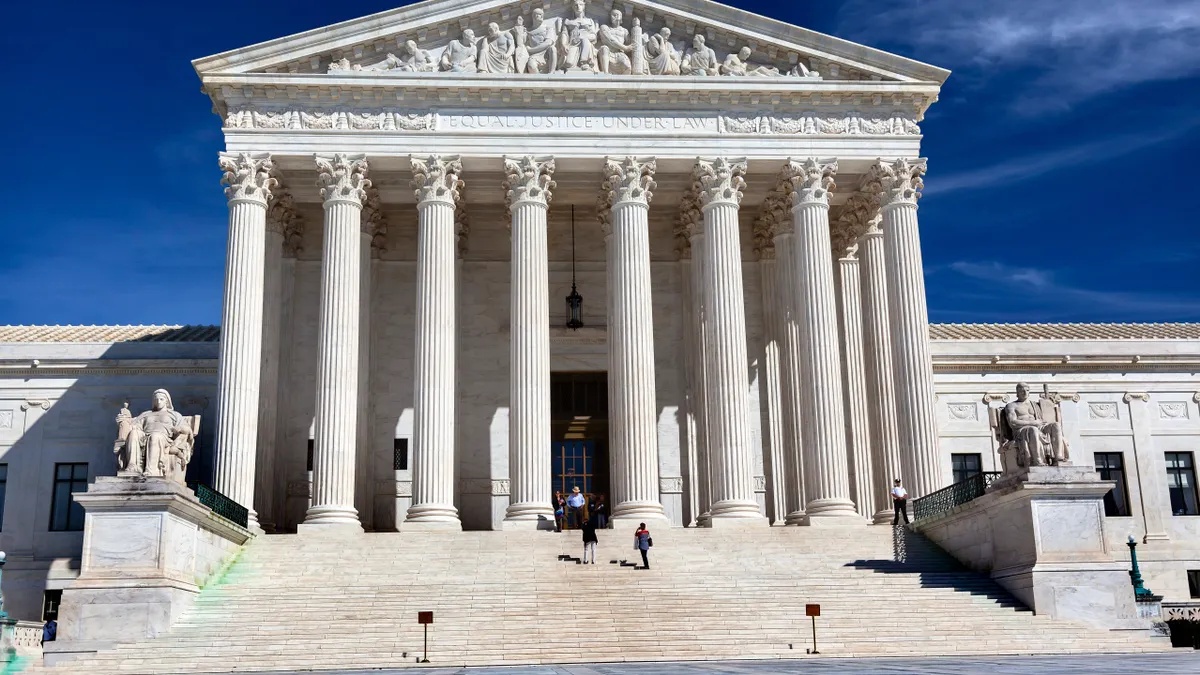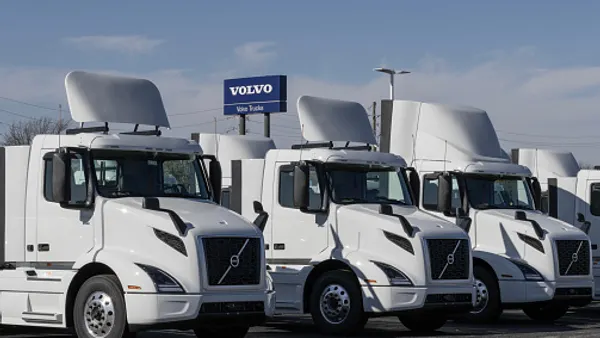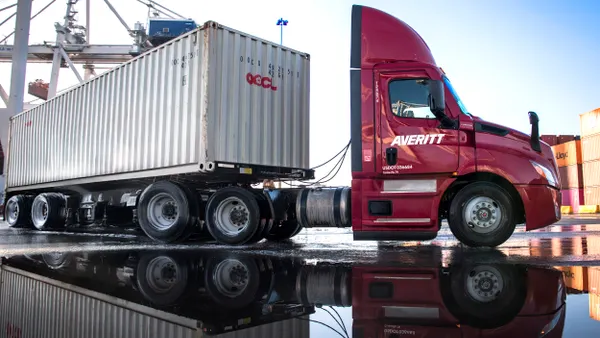Dive Brief:
- The U.S. Supreme Court declined to take on the case regarding California's contractor classification standards this week, refusing to review the California Trucking Association (CTA) appeal in the case of California Trucking Association v. Julie A. Su (California Labor Commissioner).
- The CTA appealed an earlier ruling by California's 9th Circuit on the grounds that the Federal Aviation Administration Authorization Act ("F4A") preempts the state from applying its own classification standard test.
- The Supreme Court's decision to not review the 9th Circuit's opinion means the state's tests will still be applied to classification disputes. These standards consist of the traditional "Borello standard" as well as a more recent refinement, referred to as the "ABC test."
Dive Insight:
With SCOTUS opting not to take up the case, California retains the ability to apply its own standard for who may be classified as an employee and who is a contractor.
The Borello standard, which is what the 9th Circuit applied in California Trucking Association v. Su, is the traditional test first established in 1989. This test evaluates which party — the employer or the owner-operator — controls the work. Via this test, the court determined F4A did not preempt state law which, according to the Society for Human Resource Management (SHRM), "Is a labor standard that generally applies across industries in an area of law that is typically governed by the states and that the drivers' claim is not really related to motor-carrier prices, routes or services."
Through a 2018 decision of the case of Dynamex Operations West, Inc. v. Superior Court, the state's Supreme Court developed a new standard, called the "ABC test," replacing in part the Borello standard. The new standard examines more closely whether "the worker performs work that is outside the usual course of the hiring entity's business," according to SHRM. Simply put, a company cannot hire a worker to perform similar duties to that of their own employees — such as truck driving — and classify them as independent contractors. These workers would then be eligible for minimum wage, benefits and overtime requirements.
The reason why the 9th Circuit applied the Borello test instead of the ABC test, in this case, is because the latter only should be applied under wage order claim disputes.
Justice for Port Drivers and the Teamsters applauded the Supreme Court's decision to defer to the lower court. "The highest court in the land has effectively closed the case on predatory trucking companies' efforts to dodge taxes and steal the hard-earned wages of drivers," said Fred Potter, Vice President at Large, International Brotherhood of Teamsters, and Director of the Teamsters Port Division.
As several legal experts told Overdrive, the best defense here is to pay drivers fairly and be a good employer.















